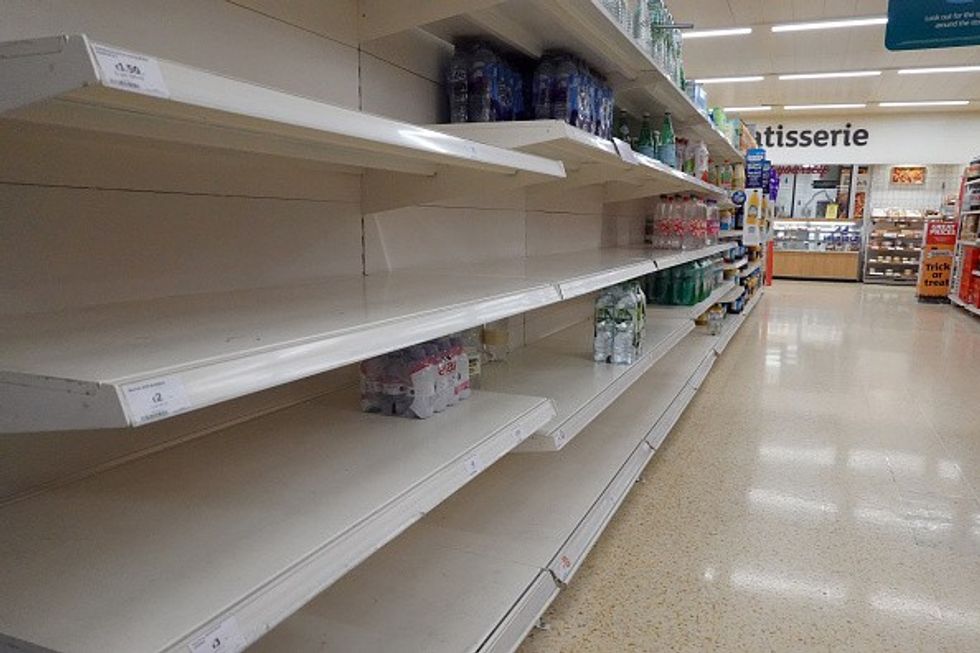Over a third (39 per cent) of middle market businesses have experienced supply chain issues in the past 12 months, a new survey has found as it warned that these woes are here to stay as multiple pressure points mount.
As far as retail is concerned, this is merely the tip of the iceberg with the sector bearing the brunt of many of the issues caused by the pandemic, Brexit and now the war in Ukraine, notes the latest "The Real Economy" report from consulting firm RSM UK.
While retailers have built supply chains on a single point of origin strategy where goods could be sourced, manufactured and shipped cheaply, this model is no longer reliable, profitable or sustainable, it adds.
The report found one in three business leaders said the pandemic was the main driver of supply chain challenges, and around one in five blamed Brexit for the ongoing turmoil. Other reasons for the disruption included increased shipping costs, cited by 16 per cent of respondents, events in Ukraine (12 per cent) and increased competition for scarce resources (10 per cent).
“The first supply chain shocks came from Brexit and getting goods to and from Europe. Then we had coronavirus related chaos, where issues were most acutely felt with our trade with China, impacting goods using advanced microchips, semi-conductors and textiles, the latter still acutely affecting fast fashion. But now we have a more general supply chain issue affecting basic necessities too. This is when the challenges for retailers, many of whom operate within complex international supply chains, really start to bite,” Jacqui Baker, partner and head of retail at RSM UK, said.
“Unfortunately, there’s no going back from the disruption we’ve seen, and retailers should prepare for future shockwaves to come. For the first time we are seeing very clearly how climate change will feed into economic recession and problems with supply chains. At least five European countries including the UK declared states of emergency or red alerts in July in relation to the unprecedented hot weather.”

RSM’s research showed the top five supply chain issues that businesses are currently experiencing include delays with orders (48 per cent), increasing costs (46 per cent), missed deadlines (37 per cent), orders not fulfilled (35 per cent) and poor communication from suppliers (34 per cent).
Around two thirds of middle market businesses surveyed - companies with a turnover between £10m and £750m, or financial institutions with assets under management of £200m to £7.5bn - said their supply chain issues were also causing problems for their downstream customers. Over half said they’d been delayed in fulfilling their customers’ orders and 43 per cent had increased the price of their goods significantly. Around a third admitted some orders were not fulfilled at all.
To address the problems, in the past year almost half (42 per cent) of businesses have increased the number of suppliers they use in an attempt to become less reliant on one source, a third have nearshored the supply chain and 41 per cent are considering nearshoring within the next 12 months.
Baker added: “The issues we are seeing now gives an insight into how many businesses were not adequately ready to cushion against the global supply shocks. This is clearly not just a UK issue but very much a similar story across other advanced economies. While ‘just in time’ helped supply chains become leaner, the pandemic exposed its weaknesses. A switch by some cash-rich retailers to ‘just in case’ supply tactics has helped strengthen their supply chains and improve stock levels of core products. But getting the right balance of tightly controlling orders and not spending too much cash is a massive challenge; and for many cash-strapped retailers they can ill afford to employ ‘just in case’ tactics in the first instance.”

Here are the report’s recommendations for retailers to improve efficiencies and minimise risk within their supply chains:
- End-to-end visibility: Retailers must embrace technology that offers a single view of their supply chain, not disconnected multiple data systems, that allows collaboration and transparency across all functions of the business. This can help accelerate response times and reduce bottlenecks.
- Don’t put all your eggs in one basket: Volume discounts can make committing to one supplier an attractive and short-term proposition. Rather than being at the mercy of one supplier retailers can reduce that risk through multiple suppliers to also mitigate problems such as capacity constraints or delivery.
- Dynamic inventory management: Retailers are rich in data. By harnessing forecasting tools, customer demand and information from primary suppliers, retailers can manage their inventories intelligently.
- Empower teams: When supply chains are disrupted, complex matrix structures and hierarchical leadership can stop a fleet-footed response when decision making is time critical to keep operations working effectively.
- Collaboration when buying and planning: Collaboration across the supply chain will be key to securing the right assortment of products with minimum disruption and hopefully maximise profit margins.






